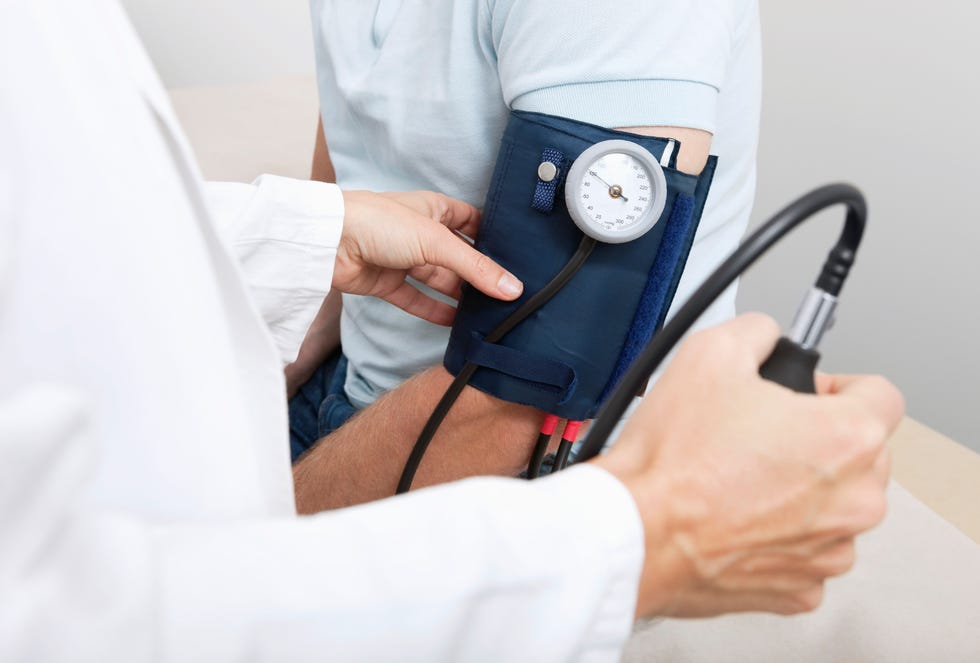Two common themes in health advice include staying hydrated and maintaining good blood pressure levels. These seemingly disparate facets of happiness, however, are inextricably linked. Water, an essential component of our bodies, plays an important function in blood pressure regulation. Understanding the complex relationship between hydration and blood pressure is critical for improving your overall health. In this detailed tutorial, we examine the consequences of dehydration on blood pressure and discuss how staying hydrated can improve your cardiovascular health.
The Connection Between Water and Blood Pressure
According to Mary Greene, M.D., a renowned cardiologist at Manhattan Cardiology, water accounts for an astounding 90% of your blood volume. The relationship between hydration and blood pressure is complex, and a lack of water can impact blood pressure levels.
Dehydration occurs when your body loses more fluids than it takes in, which is frequently caused by activities such as sweating, vomiting, or diarrhea. As fluid levels drop, so does your body's ability to function optimally. To avoid dehydration, it is critical to replenish lost fluids through adequate water intake.
Variations in Blood Pressure
Dehydration can induce blood pressure variations, resulting in both high and reduced readings. The severity of these changes is determined by factors such as dehydration severity, duration, and the presence of underlying health issues. Oral Waldo, M.D., a respected cardiologist at Palm Beach Gardens Medical Center and Good Samaritan Medical Center, emphasizes the need of being hydrated in order to keep blood pressure stable. This procedure guarantees that oxygen and nutrients are delivered efficiently throughout the body, which is vital for overall health.
Blood pressure variations caused by dehydration can have serious effects. These changes may have an effect on essential organs such as the brain, kidneys, and heart, emphasizing the need of maintaining stable water levels.
Dehydration: Causes and Effects
Dehydration occurs when your body loses so many fluids that it can no longer operate properly. Consuming enough water to prevent dehydration protects against irregular blood pressure changes. Kim Yu, M.D., a family physician, emphasizes the importance of water as the best fluid for hydration. While tea, coffee, and sports drinks might help with fluid intake, alcohol should be drunk in moderation due to its drying properties.
A basic rule of thumb indicates that men should drink 15.5 cups of water each day, while women should drink 11.5 cups. Individual requirements, however, may vary depending on factors such as exercise frequency and exposure to hot conditions. Dr. Yu emphasizes that the goal is to drink enough to avoid feeling thirsty.
Adequate water consumption maintains optimal blood volume, allowing blood vessels to dilate and reduces resistance to blood flow. According to Robert Pilchik, M.D., a distinguished cardiologist from Manhattan Cardiology, this perfect balance helps keep blood pressure within normal ranges.
The Effects of Dehydration on Blood Pressure
Dehydration has a dual effect on blood pressure, causing both lower and higher readings depending on the conditions.
Lower Blood Pressure: Dehydration causes a decrease in blood volume, which causes blood pressure to fall. Consider a pipeline with a low flow of water—the same concept applies to the body's blood arteries, where decreased fluid content causes a drop in blood pressure. As a result, the body makes modifications to maintain blood pressure and flow, which may result in elevated blood pressure levels. This response may also put strain on the heart and increase the likelihood of fainting.
Higher Blood Pressure: When blood volume decreases owing to dehydration, the body conserves blood pressure for important activities and homeostasis. This can lead to concentrated blood with high salt levels. The hormone vasopressin is secreted, prompting the kidneys to retain water rather than excrete it through urine. Furthermore, blood arteries contract to ensure tissue perfusion, resulting in raised blood pressure. The sympathetic nervous system also becomes more active after dehydration, releasing chemicals that raise blood pressure even more.
Identifying the Warning Signs and Dangers
Low blood pressure, indicated by values of 90/60 mm Hg or lower, is accompanied by the following warning signs:
Confusion
Feeling dizzy or lightheaded
Fainting
hazy vision
Headaches
Nausea
Palpitations in the heart
Blood pressure variations caused by severe dehydration can be harmful to the heart and the body as a whole. As Dr. Pilchik emphasizes, the link between dehydration and high blood pressure should not be overlooked. These changes may result in kidney difficulties, increased risks of heart attack and stroke, and overall cardiovascular distress.
Hydration as a Priority for Heart Health
Understanding the fundamental relationship between hydration and blood pressure emphasizes the significance of being hydrated. Maintaining correct fluid balance helps to keep your cardiovascular system stable. Hydration is critical in preventing harmful blood pressure changes, which can harm heart health and overall well-being.
Keeping your body hydrated should be a top priority in the goal of whole heart health. Dehydration has far-reaching consequences that go beyond basic pain, directly altering blood pressure dynamics and, as a result, cardiovascular fitness. Accept hydration as a cornerstone of your wellness path to improve the resiliency of your heart and your general quality of life.

